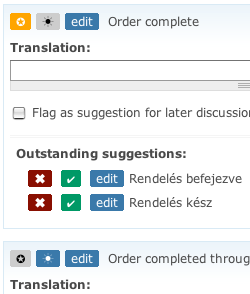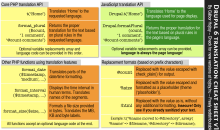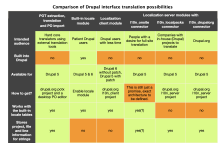Just over a week ago, I've been in New Orleans to talk about multilingual Drupal website building at the Do It With Drupal event organized by Lullabot. I've been happy to join fellow Acquians for a short time at the office and then at the Do It With Drupal seminar to represent the company. It was a fun experience to hook up with so many other people looking into using Drupal for the first time or even selling Drupal services already. It was a good mix, and was a very different target audience compared to Drupalcons. This event was more focused on the path seekers and the beginners with high detail and cross-discipline talks over four days. I've enjoyed several sessions, including Robert's session on Solr.
Unfortunately (for my enjoyment of the conference), my session was at one of the last slots, but it had a good turnout nonetheless. I've been prepared well in advance with a completely rethought line of thought (compared to previous, more developer focused events), and a slideshow done from the ground up. So despite talking about this topic before elsewhere, I needed to have a totally fresh look at the topic and present all the latest developments to date.
Since I do not have the permissions to upload my session to the website of the event, and the slides I sent in by email were not uploaded yet, I figured I'd better share them here with those eager to look into them soon. Happy holiday's reading if you are about to take time to learn more about multilingual Drupal solutions!

 It looks like the list of sessions for DrupalCon Boston is finalized, so I am happy to announce, that we are going to have a
It looks like the list of sessions for DrupalCon Boston is finalized, so I am happy to announce, that we are going to have a 




